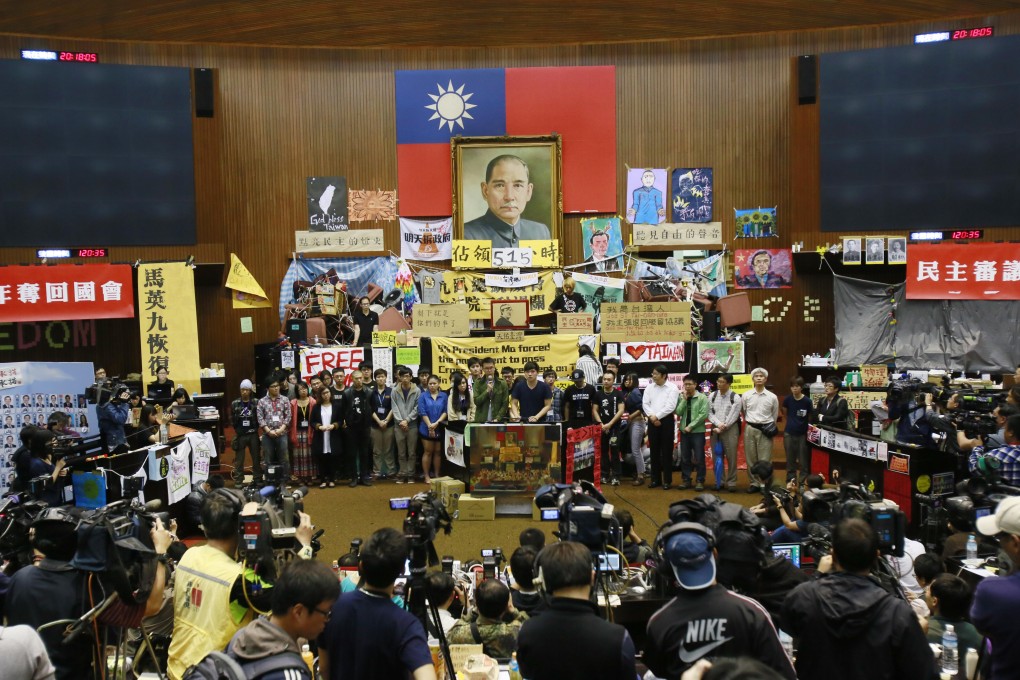Taiwan needs to think long-term as region's economic focus shifts
Common sense has prevailed in Taiwan's political stand-off over a cross-strait trade services pact. Student-led protesters have pledged to end their occupation of the legislature after assurances an oversight law will be enacted.

Common sense has prevailed in Taiwan's political stand-off over a cross-strait trade services pact. Student-led protesters have pledged to end their occupation of the legislature after assurances an oversight law will be enacted that will prevent the ruling Kuomintang ramming the trade deal through without detailed examination by lawmakers.
This upholds an earlier agreement that the bill would be reviewed and voted on one clause at a time. But it also raises the risk that the pact will be seriously delayed, which would be unhelpful to cross-strait relations. Having won an important point of principle, the opposition should now expedite transparent examination of the bill to address the perception of lopsidedness that will cost jobs and lead to economic dependence. A drawn-out legislative process will do nothing for Taiwan's long-term interests. An ongoing reminder of this is to be found in the mainland's transition to a more consumer-led economy, which calls for Taiwan to refocus integration on provision of services rather than manufacturing. A fresh reminder came this week with a report that foreign direct investment in Southeast Asia's largest economies, with their cost advantage, overtook FDI in China last year, confirming the region's growing importance to the global economy.
This ought to resonate strongly across the political spectrum in Taipei. Taiwan will need to negotiate access to this regional market of more than 600 million people too if it really wants to avoid overreliance on the mainland. To make progress it will need Beijing's understanding for its efforts to join regional trade blocs, such as the proposed US-led Trans-Pacific Partnership and the Regional Comprehensive Economic Partnership, comprising the 10 member nations of the Association of Southeast Asian nations plus six others, including mainland China, India and Japan. That goodwill, ironically, could hinge on early development of deeper cross-strait links such as the trade pact.
The pact was spawned by the historic 2010 Economic Co-operation Framework Agreement. It may indeed be more lenient in its restrictions on mainland companies wanting to set up in Taiwan than vice versa. The most effective way to address that is through a transparent and democratic legislative process. If the government ultimately ignores public sentiment, it may have to answer to it in local elections in December and presidential polls due in 2016.